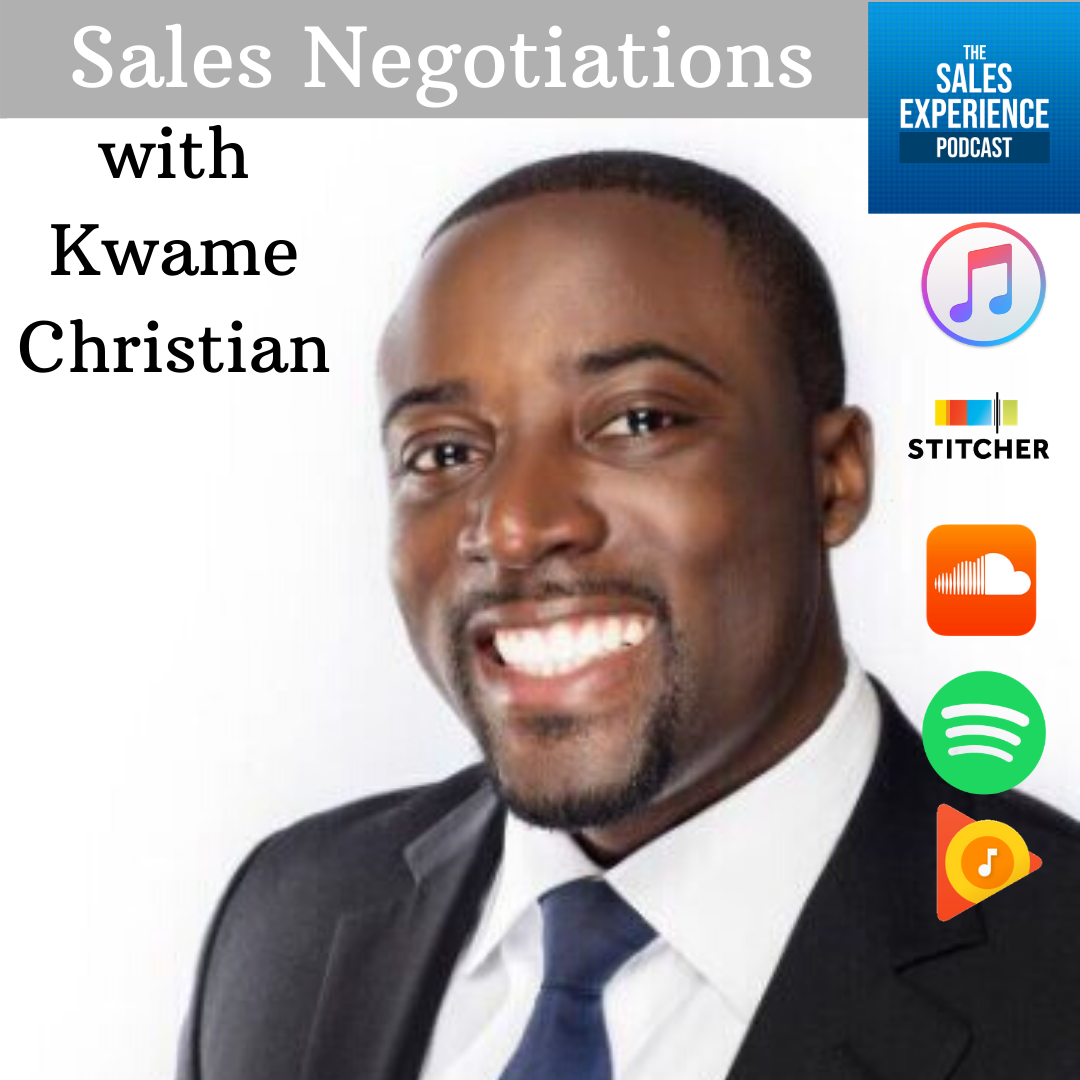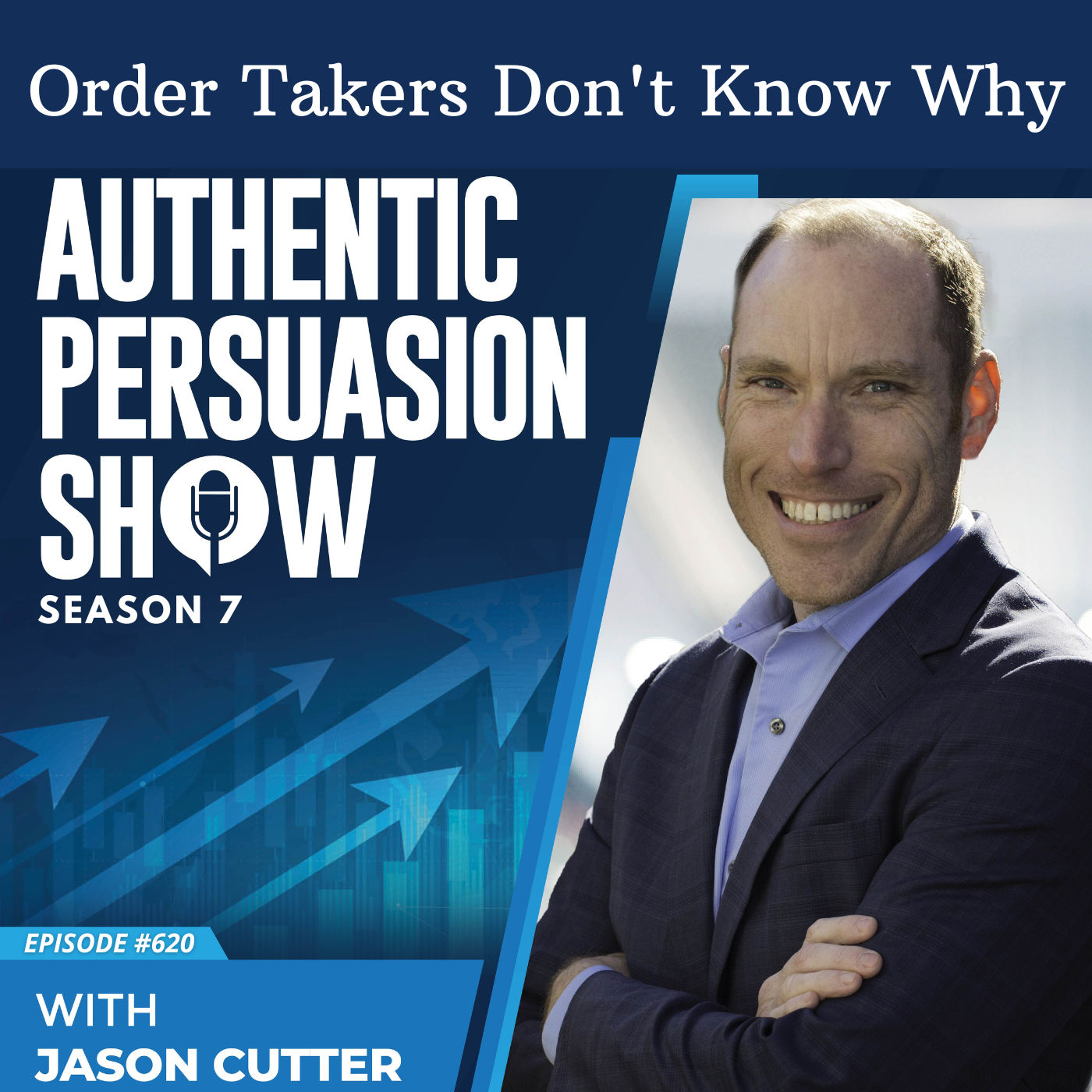Episode Transcript
[00:00:00] Speaker A: Welcome to the authentic Persuasion show. On this episode I want to replay part of a previous show. Maybe you heard the original full length episode and this could be a great refresher and reminder. Or maybe this is your first time hearing this content and the timing could be just right to help you leverage authentic persuasion today in your role, no matter what. Here's to your success.
[00:00:21] Speaker B: This is the authentic persuasion show.
It. So let's talk about the other topic that I wanted to cover for this week, which is assumptions. Right? So there's assumptions and then there's two closes that I want to touch on fairly quickly here.
One of the biggest things I see is that a lot of people in sales get to a point in their career where they make some assumptions and unfortunately they make the wrong assumptions. And there's two wrong assumptions that I see. If either one of these resonate with you, great. Then if you can recognize that and you know that's you, that's always the best, right? The first step is realizing what you might be doing and then from there you can fix it. So it's fantastic. If these resonate, that is amazing. If they don't resonate or you're new in sales or you don't have these things, then make sure to pay attention to this and make some notes and just file it away, even mentally, because what I've seen is some people start off not doing these things. These two assumptions I'm going to talk about. And then what happens is over time they kind of basically get desensitized to the sales process, to consumers, or they have bad experiences or something happens such that they fall into these traps. So the two assumptions, one I kind of mentioned already throughout this conversation is that people assume that everybody wants what they're selling. They believe they have the golden ticket, the golden goose, they have the most amazing thing.
They have the perfect solution for everybody, and everybody should want it. You see this all the time. I see this all the time. Especially with B to B, with tech startups, with things like that where they think this is going to be amazing, we're going to be the next unicorn, we're going to be worth billions of dollars, we're all going to be rich. And it works out for some of them. But does the world need it? And here's the big thing is if your solution is great, if what you're selling to consumers, to individuals, doesn't matter, if it works, if it's great, that's fantastic, get it out there, make a lot of money, help a lot of people, and be successful. I think that's so important. The challenge is, and this is what you have to watch out for, is assuming that everyone wants it, right? Assuming that everyone should buy it. If you do that and you have that approach, people can feel it. It's what I've been battling with you through this series.
[00:02:44] Speaker A: Right.
[00:02:45] Speaker B: We're now in session number eleven. But through this series, when I talk about the rapport, the empathy, what I want you to do, how I want you to approach it, the fact that we need to make sure that the customer is the hero of the story and you're the guide. If you assume they want it, then you're just that pushy guide that thinks everyone should want it and it doesn't work. Right? Like that doesn't fit. And what I would say is that if you sell something where you think everyone should be a good fit, I'm not able to help you. And what I've been speaking about isn't going to help you either because you're in a different approach. Not that it's right or wrong. Right. Maybe you're selling a commodity. Maybe you're selling something that everybody wins. Anybody you talk to should sign up. That's great. This isn't for you. This is for everyone else. This is for people who are part of a considered purchase, a consultative sale where there's some kind of decision whether somebody's a good fit or not. And like, I just saw Ryan Butler, my budy, who I just met in person for the first time, which is super fun, when I was in Miami the other day, he says one size does not fit all, which is the key. Right. Is that if you're selling something, there's going to be people who it should be for and people who it shouldn't be for. Right. There's people who should be your customers or not. And assuming that everyone you talk to should buy it. We've all experienced those people. We've all experienced people who are selling something and they just assume everyone should want it. And they're selling, like Ryan put in the comment as well, that they're selling from a place of passion. I think of many people who are in network marketing, direct sales, and they think everyone should want this thing and they just go at it like that route and there's a passion behind it. But is it a good fit for everyone? They're just assuming that it is. So watch out for that assumption. The other assumption that's really big, that can get people in trouble is prejudging what happens. Well, if you've been in sales for any length of time selling the product or service that you're selling right now, one of the things that you've come across is people who are a good fit, people who sign up, people who should buy and want to buy and are excited to buy it. And then there's the rest, which are people who don't or have some issues over time. What happens is salespeople again will get desensitized and then realize, hey, there's people who, when I talk to them, they want to buy. And then there's people who don't. Right? Like people who are just like, no, I don't want to buy.
Then salespeople, over time, in the beginning of conversations, ask a few questions, try to determine if someone fits in the good box or the bad box, the good path, the bad path. And then what happens is they make a prejudgment from there and then they're done.
[00:05:24] Speaker A: Right?
[00:05:24] Speaker B: If we look at sales, let's say car sales, there's so many stories of people who, some of it's anecdotes, some of it, I think is real stories. Some might be urban legends where person looks like they're homeless, walks onto the car lot, nobody will talk to them, nobody will help them, nobody will pay them any attention. Everyone just assumes that person has no money. I'm here to make money. Time is money. So if I spend time with that person, I'm going to be losing money, right? I'm going to miss a better opportunity. I'm going to miss a better up, as they call it, right? And so I'm not going to do it. So everyone ignores that person. Well, it turns out that person has a ton of money and cash and wants to buy a car and will appreciate anybody who gives them time. As many of these stories go, it's usually the new salesperson who does that know better. That's not prejudging or is just eager to help. Anybody turns out to sell them a car, sell them multiple cars and make a lot of money off of that by not prejudging.
![[738] Identifying and Overcoming Bias](https://episodes.castos.com/salesexperiencepodcast/images/1690951/c1a-4d8w-498z7x54a7jp-88cuao.png)


